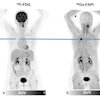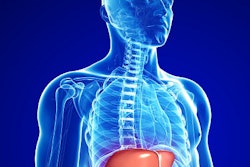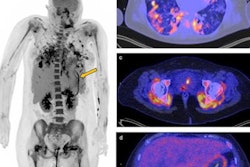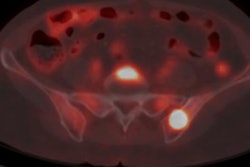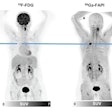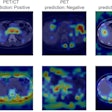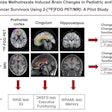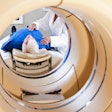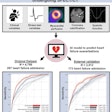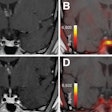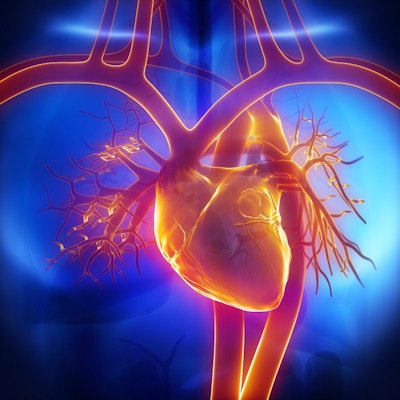
F-18 FDG-PET/CT may be a valuable tool for identifying cardiovascular manifestations in patients with immunoglobulin G4-related disease (IgG4-RD), according to a study published March 17 in EJNMMI Research.
A group at Nanyang Technological University in Singapore tested the approach in patients diagnosed with IgG4-RD either with or without cardiovascular manifestations. They found F-18 FDG-PET/CT played a crucial role in characterizing the extent of the disease.
"F-18 FDG-PET/CT is an important investigation to determine all sites of involvement in this multisystemic disease and to rule out life-threatening cardiovascular manifestations even in the absence of symptoms," wrote lead author Dr. Mingwei Chen and colleagues.
IgG4-RD is a chronic inflammatory condition mediated by IgG4 antibodies. For reasons that remain unclear, circulating immune cells that produce IgG4 accumulate abnormally in multiple different organs, where they can cause lesions to form. The condition can be treated effectively with corticosteroids.
While biopsies of affected organs remain the gold standard for the diagnosis of IgG4-RD, cardiovascular lesions are especially difficult to assess and yet are crucial to identify due to the possibility of life-threatening complications, the authors explained. To address the knowledge gap, they explored whether F-18 FDG PET/CT imaging could help identify these cardiovascular signs and manage the disease.
The group identified 46 patients diagnosed with IgG4-RD between January 2012 and June 2021 at Singapore General Hospital. The researchers divided the patients into an eight-member subgroup with cardiovascular manifestations and a 38-member subgroup of patients without them, depending on the presence or absence of IgG4-RD lesions in the heart, blood vessels, or pericardium.
Notably, eight patients (17.3%) in the 38-member subgroup did not have symptoms related to IgG4-RD and were identified incidentally during radiological or histopathological evaluation for other diseases, the authors reported.
The study found that the F-18 FDG-PET/CT scans identified 36 sites of organ involvement among the eight patients in the cardiovascular subgroup, and 73 sites of organ involvement among the 38 patients in the non-cardiovascular subgroup.
Regarding cardiovascular manifestations, the PET/CT scans were used to identify lesions in the pericardium (2), coronary arteries (5), as well as aorta and other vessels (4). In descending order of frequency, the sites of involvement in the arteries were the abdominal aorta (3) and iliac arteries (3), followed by hepatic arteries, descending aorta, coeliac artery, renal artery, and right-sided mesenteric vessels (1 each).
Multiple organ involvement -- defined as at least two organs with suspected IgG4-related disease -- was more frequent in patients within the cardiovascular subgroup (75%) than in the noncardiovascular group (52.6%), the researchers found.
"Our study has demonstrated that patients with cardiovascular involvement tend to have more extensive IgG4-RD," the researchers wrote.
The authors noted that this was one of the largest retrospective studies to date exploring the utility of F-18 FDG- PET/CT in patients diagnosed with IgG4-related disease but that further studies are warranted.
"Future research with a prospective study design may lend further credence," Chen and colleagues concluded.

